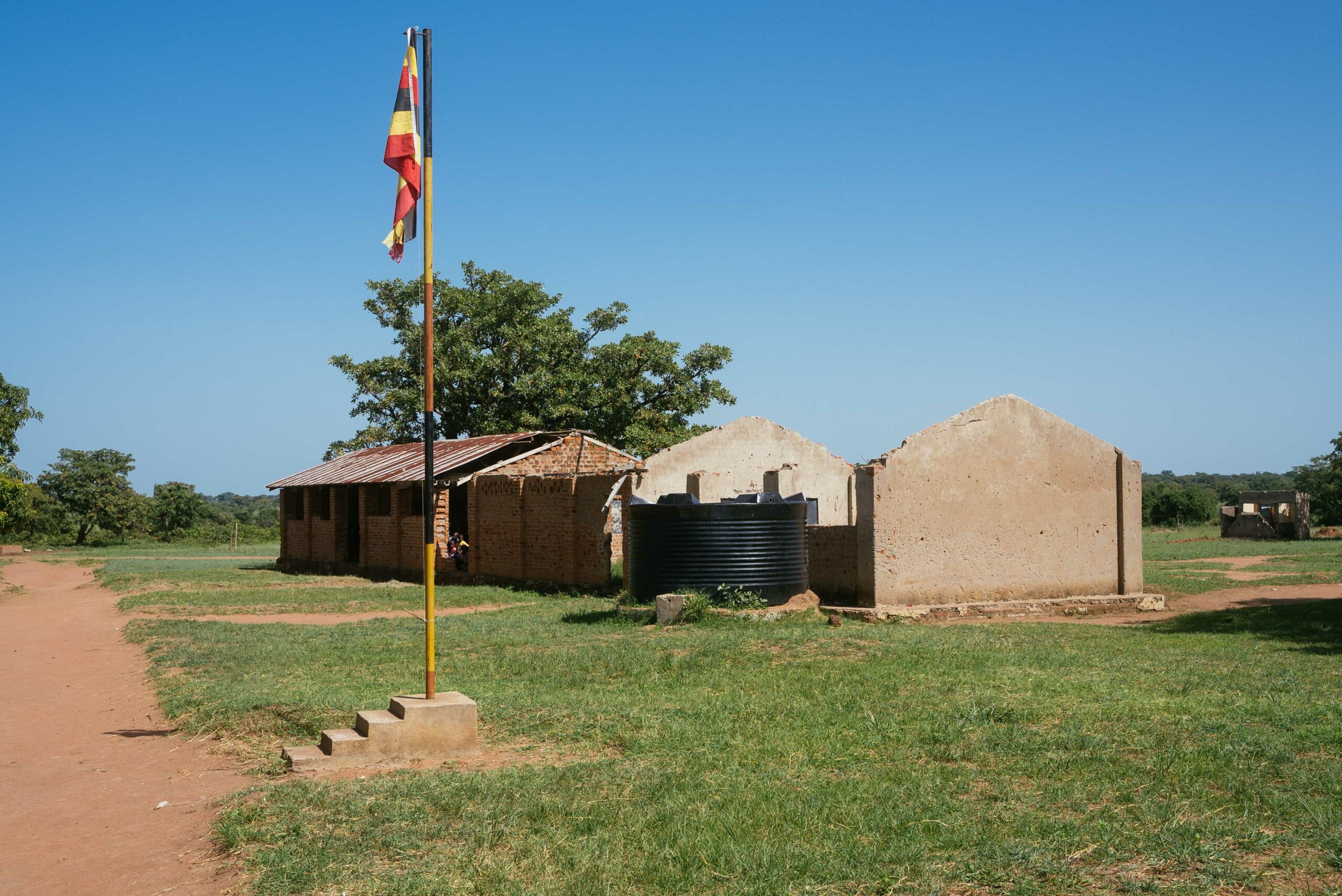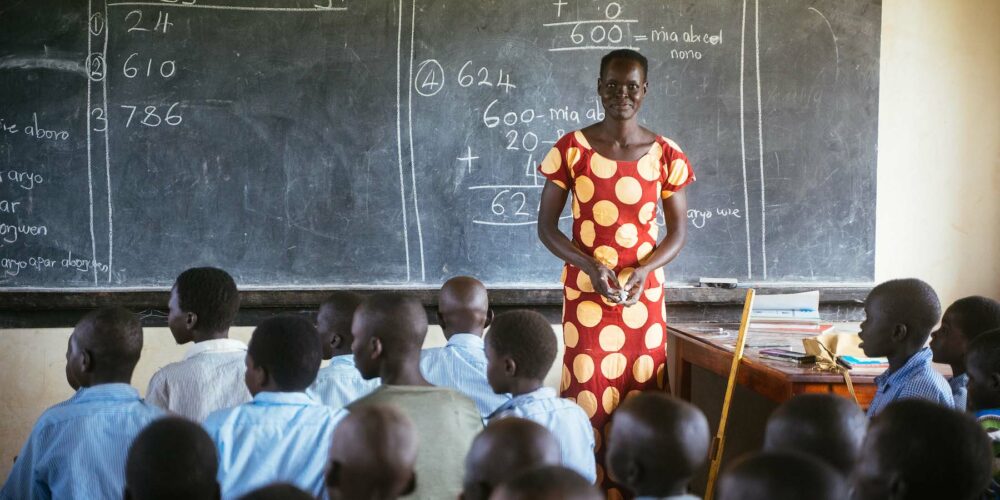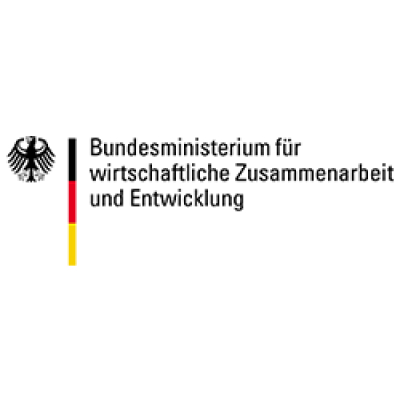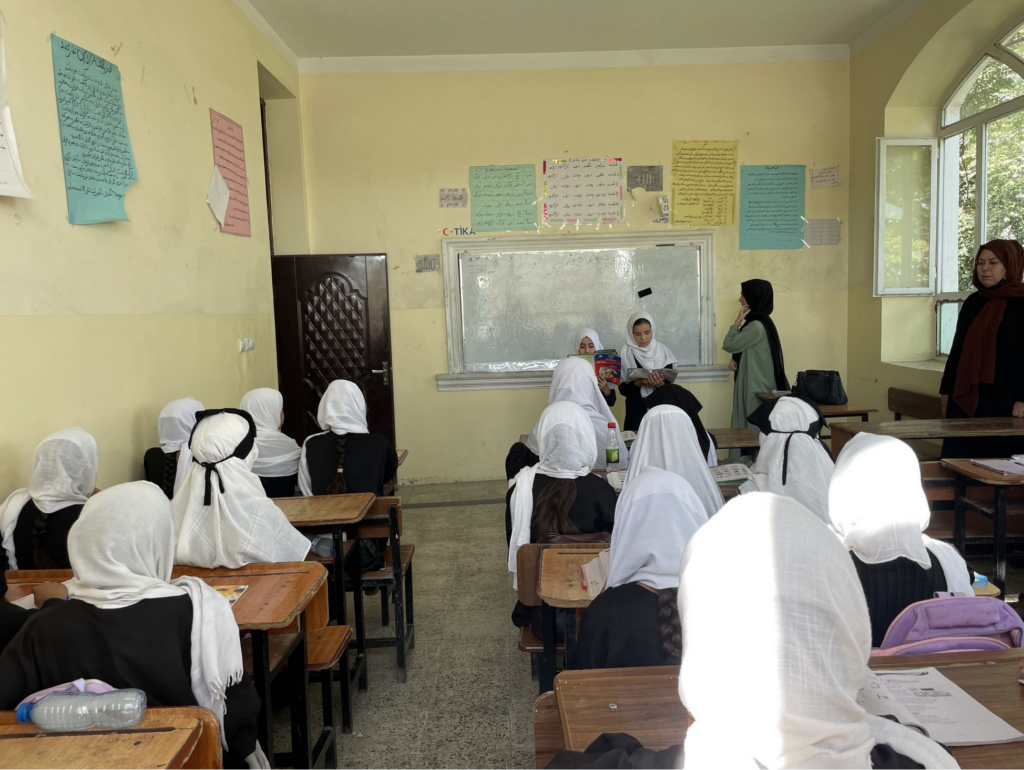
Improving the quality of education for 6 primary and secondary schools in Balkh, Afghanistan
The goal of the project is to improve the quality of education at the six selected schools in Balkh Province in northern Afghanistan. To ensure the benefit of both students and teachers, we have developed comprehensive measures in collaboration with our project partner, the Organization of Afghans Support for Education (OASE). These include construction projects and capacity building: existing buildings, equipment, and hygienic sanitation facilities will be replaced and renovated. This will be complemented by WASH (Water, Sanitation, Hygiene) workshops and various training courses. Additionally, mental health centers will be established for the school community.
INITIAL SITUATION
Currently, 5,008 girls and 6,448 boys are being educated by 295 teachers at the project schools. The target group also indirectly includes 3,881 girls from the 7th grade and their teachers, as they are currently denied access to education by the Taliban. However, there is hope that they will be able to return in the long term and benefit from the improved quality of education.
LIVING IN DIFFICULT TIMES
As in other parts of Afghanistan, agriculture plays an important role in Balkh; the province is known for the cultivation of melons and grapes. The completion of the Qush Tepa Canal is expected to boost agriculture. This should strengthen the economy and increase the population of Balkh, as many Afghans from other parts of the country will move to the province in search of work. Currently, the region – like the rest of Afghanistan – is suffering from a dramatic humanitarian crisis as a result of the Taliban’s renewed takeover. A large part of the population is dependent on humanitarian aid and investment in infrastructure or education is virtually impossible.
CHALLENGES AT THE SCHOOLS
Improving the quality of education at the 6 project schools is all the more necessary in order to be able to guarantee adequate teaching for an increasing number of students in the short and long term. Despite progress in the areas of overall literacy and enrollment rates, government schools in Balkh continue to lack capacity. School leaders often struggle to manage schools effectively, leading to inadequate maintenance, a lack of IT infrastructure and inefficient administration. Many schools do not have trained specialists for repairs, and teachers are often not sufficiently trained to provide a varied teaching approach or emotional support for students.






PROBLEM AND SOLUTION
Over the next two years, we will be actively working with our local partners to give children – and girls in particular – access to a high-quality and fair education at the 6 schools. The measures for better educational infrastructure and targeted capacity development will help to ensure that everyone has the opportunity to receive a sustainable education – also in line with SDG 4 of the 2030 Agenda.
CONSTRUCTION PLANS
In addition to repairing a main entrance gate to ensure the safety of students, this primarily means repairing classrooms. Repairs are carried out where the respective schools have indicated a need, e.g. electrical wiring that needs to be replaced or broken desks and chairs that have a negative impact on the learning atmosphere. In addition, dilapidated walls or ceilings endanger school operations, as lessons cannot take place in the affected classrooms.
A second focus is on the construction of sanitary facilities and other measures to improve hygiene. Some of the schools are being equipped with new toilets, water and waste water tanks and hand washing facilities. The aim is to prevent diseases and ensure that students can all attend lessons.
CAPACITY BUILDING
Once the sanitary facilities have been completed, WASH workshops (Water, Sanitation, Hygiene) will be held for students, teachers and employees. Among other things, these cover hygienic toilet behavior, hand washing and tooth brushing, thus creating an increased awareness of health.
In addition, various training courses are offered for teachers, for example, in classroom management, pedagogy, and dealing with students’ emotions. Mental health centers are being established as contact points for the school community with this goal in mind.
In order to support the school management and administrative staff, there will be various training courses for them in professional school management. This includes the acquisition of basic IT skills and strategic planning. The schools will also be equipped with computers and printers.
AN EXTENSIVE PROJECT
By combining infrastructure and capacity building measures, we want to guarantee the sustainability of our work and that of OASE and ensure high-quality and needs-oriented learning in the long term. A well-equipped school, well-trained and motivated teachers and professional school management are essential for providing high-quality education.






ACHIEVEMENTS SO FAR
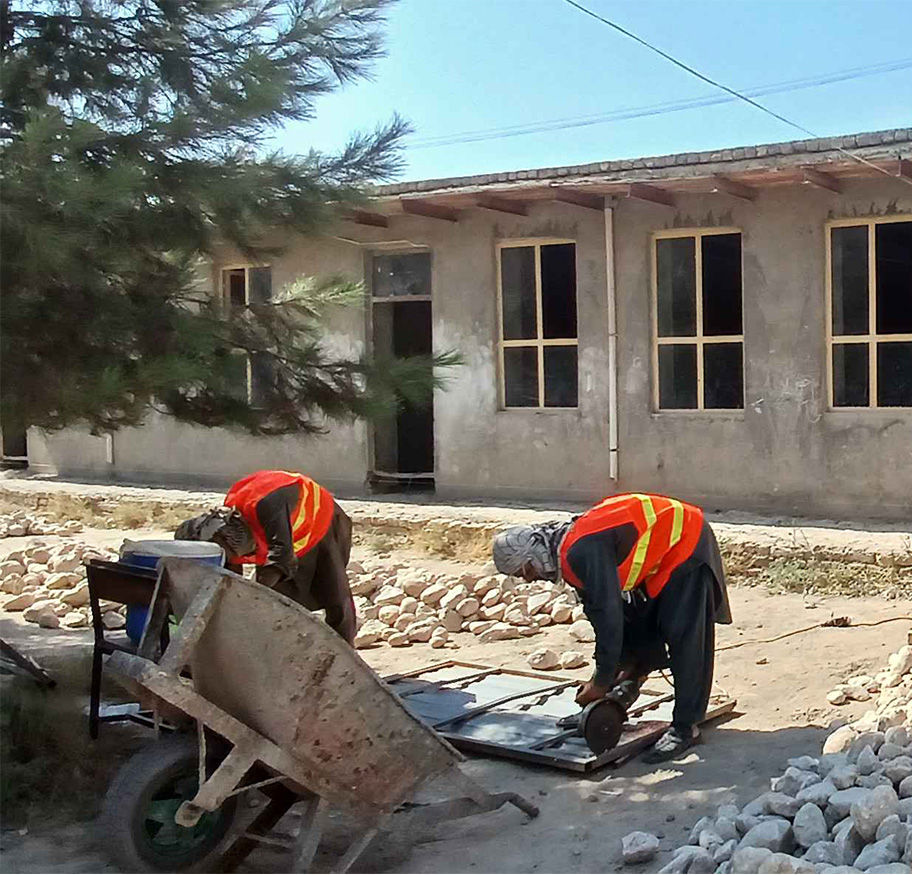
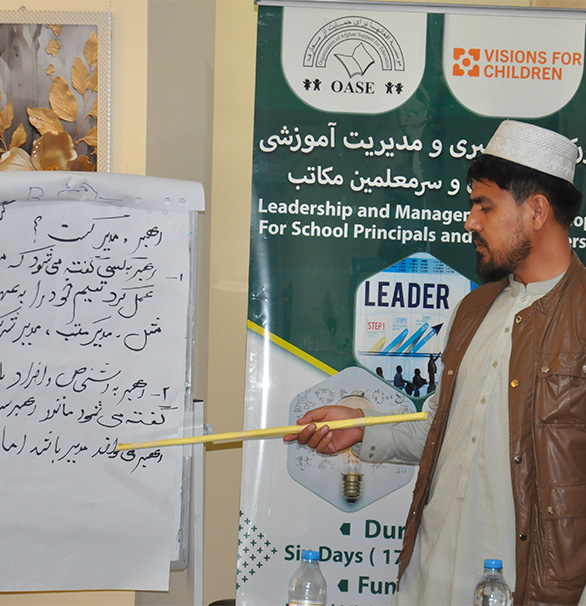
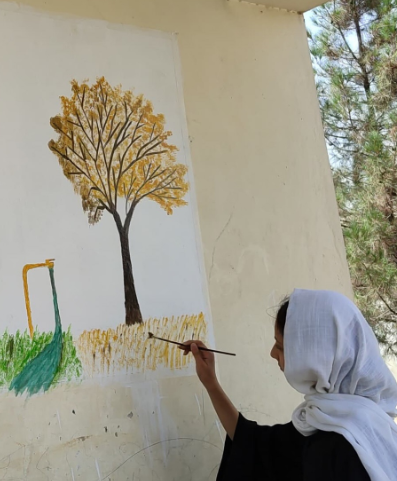
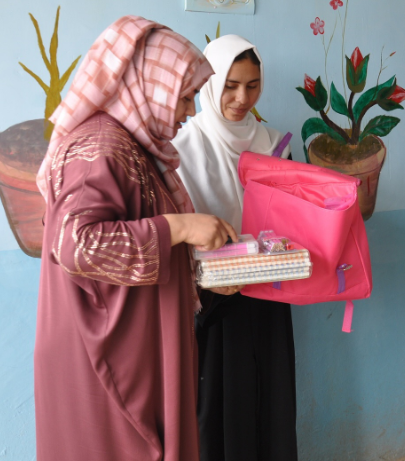
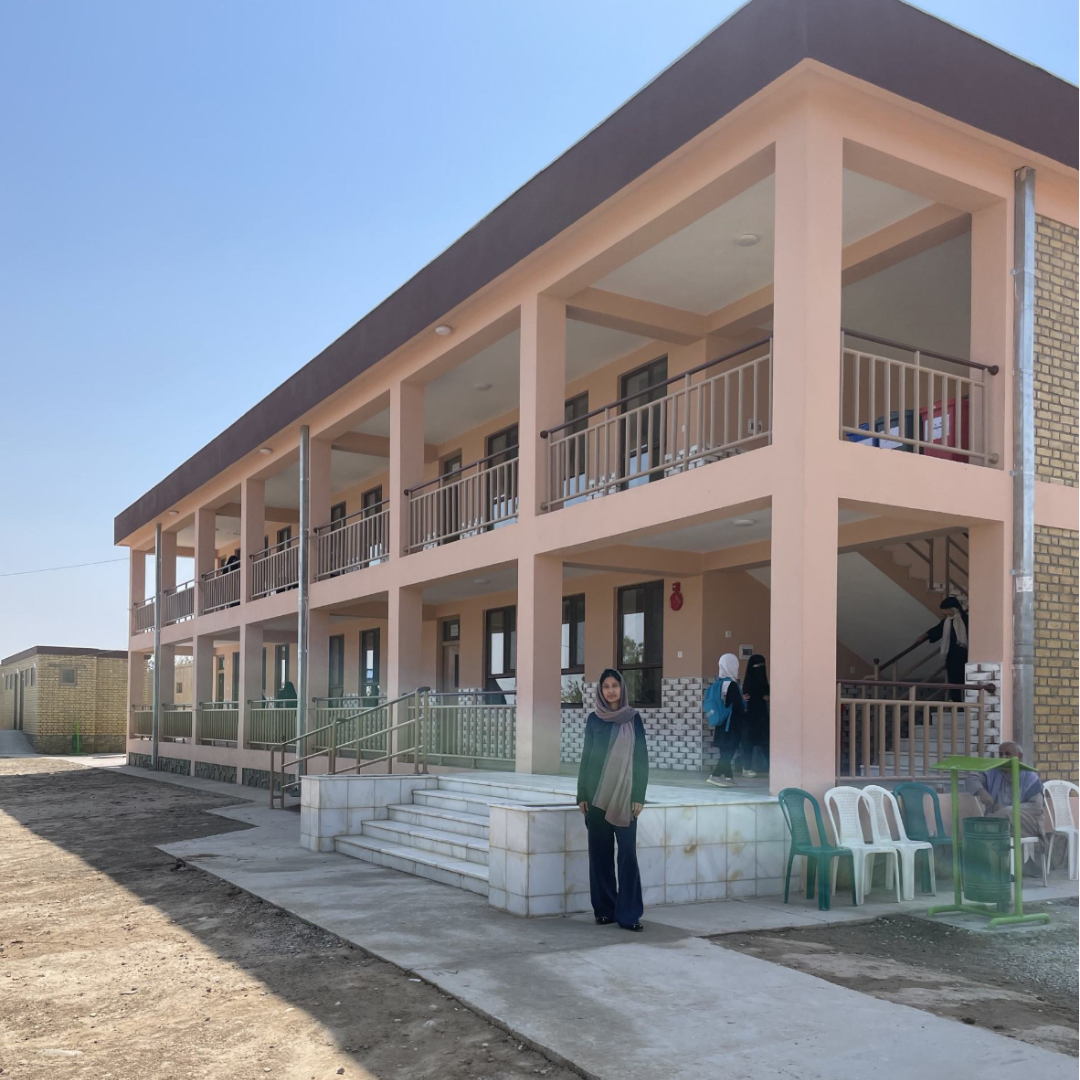
Infrastructure
The school buildings were renovated, classrooms repaired, and furniture replaced. New toilets, handwashing stations, water tanks, and wells ensure clean water and improved hygiene. Two air-conditioned containers, as well as laptops, printers, generators, and office equipment, were provided.
Staff & support
Two psychologists and two assistants provide weekly group and individual sessions to 120 students. The school principal and their deputies have completed workshops on leadership and management.
Painting Competition
The school walls are now decorated with impressive and diverse works of art that reflect the talents and creativity of the students.
Painting Competition
Our partners in Afghanistan held an inspiring painting competition in collaboration with 12 schools in Balkh Province. OASE's six partner schools in Balkh, Afghanistan, also participated.
PROJECT TRIP TO AFGHANISTAN
Before the project started, the Visions team visited the selected schools in the Balkh region together with our local project partner OASE. Hila Limar, Chairwoman of Visions, also saw for herself the progress of the projects already underway. The picture shows her in front of the Qala-e-Jangi school.
